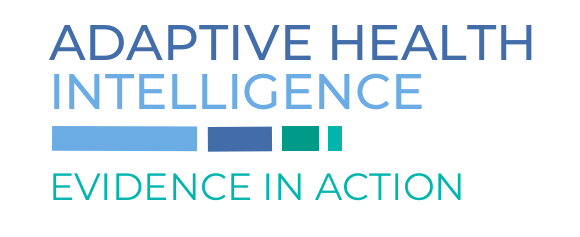Resources hub
The learning resources hub is a central place for clinicians, investigators, community members, funders and ethics committee members to access educational materials about adaptive clinical trials and resources on Bayesian Network models.
For access to these resources, please click on the links below:
Adaptive clinical trials
What is an adaptive clinical trial?
One shoe does not fit all.
Traditional clinical trials are like a train on train-tracks; the trial you plan and the trial you finish with are the same. In traditional trials, researchers must state upfront their research questions, treatment options (arms), and sample size target (how many people to recruit) prior to conducting the research. These characteristics are fixed and researchers typically don’t look at patient data until the end of the trial.
This is the way we’ve been doing medical research for decades.
These traditional fixed designs are helpful in some areas of medical research, but not for all. Complex diseases and health conditions often have multiple unanswered questions, multiple treatment options and complicated patient subgroups. In this context, conducting research in this traditional way can take too long, be expensive and generate more questions that cannot be answered, greatly affecting translation of evidence into medical care. In patient populations where there is an urgent need for information and where the stakes and costs can be high, other methods of conducting medical research are needed.
Adaptive clinical trials are different; patient data drives the research.
Adaptive clinical trials still require researchers to state characteristics of the trial upfront, however the patient data are continuously reviewed and used throughout the trial rather than waiting until the end. Rather than a train on train tracks, this approach is like using a map and compass to determine what treatments we should give, which patients can benefit most and how long we need to be collecting information for. The journey is flexible and responsive rather than rigid and unchanging. We envisage this will be the future of medical research, greatly improving both patient care and clinical trial efficiency, allowing clinicians to answer complex questions faster.
What are the benefits of adaptive clinical trials?
Clinical trials are necessary to understand the effectiveness of new treatments. They are also important to help guide standard practice, especially when there are multiple treatment options but it is not known which treatment or combination of treatments is best. Although adaptive clinical trials take longer to plan and set up than traditional trials, they have many benefits to clinicians, researchers and of course participants.
These benefits include:
Improved efficiency
Adaptive trials aim to be more efficient, particularly when using response adaptive randomisation. As the trial is optimised over time this allows the researchers to concentrate their efforts on the best performing treatments, allowing them to reach a clear answer faster.
Personalised treatment
Adaptive designs allow for subgroup analysis so we can understand what treatments work best in different types of patients. This means we can personalise treatments based on factors such as severity of disease, genetics and age.
Answering multiple research questions
For many complex diseases or conditions, there are often many unanswered questions. Adaptive designs are capable of asking multiple research questions across different areas (domains) of treatment or management of a disease.
Cost saving
Adaptive designs that have an adaptive sample size with efficient stopping rules can stop a trial early if continuing enrollment is unlikely to answer the research question. This saves not only money, but time and unnecessary exposure to treatments that are not clearly effective. Adaptive trials that are embedded into routine care can also save significant research cost.
Ability to be perpetual
Clinical trials require infrastructure like computer systems and databases. These are costly and time consuming to create. Most trials will invest in the build of these systems, but they are often dismantled and never used again once the trial is finished. Adaptive designs have the capacity to be perpetual; that is – never ending. We continue enrollment of participants until all research questions have been clearly answered.
Ethical
When adaptive designs implement smart stopping rules, they can stop early if it is unlikely that the research question will be answered. This reduces patient exposure to treatments that are not clearly effective or where all treatments are equally effective. When response adaptive randomisation is used, new patients are increasingly likely to be allocated to the best performing treatments, and less likely to treatments that appear to be performing poorly.
Adaptive Health Intelligence
We are a not-for-profit research team specialising in pragmatic and adaptive clinical trials. Our projects focus on reducing the burden of infectious diseases by improving how routinely used medications are used in clinical practice.
Contact us
We are located at:
Telethon Kids Institute
Northern Entrance, Perth Children's Hospital
15 Hospital Ave, Nedlands 6009
